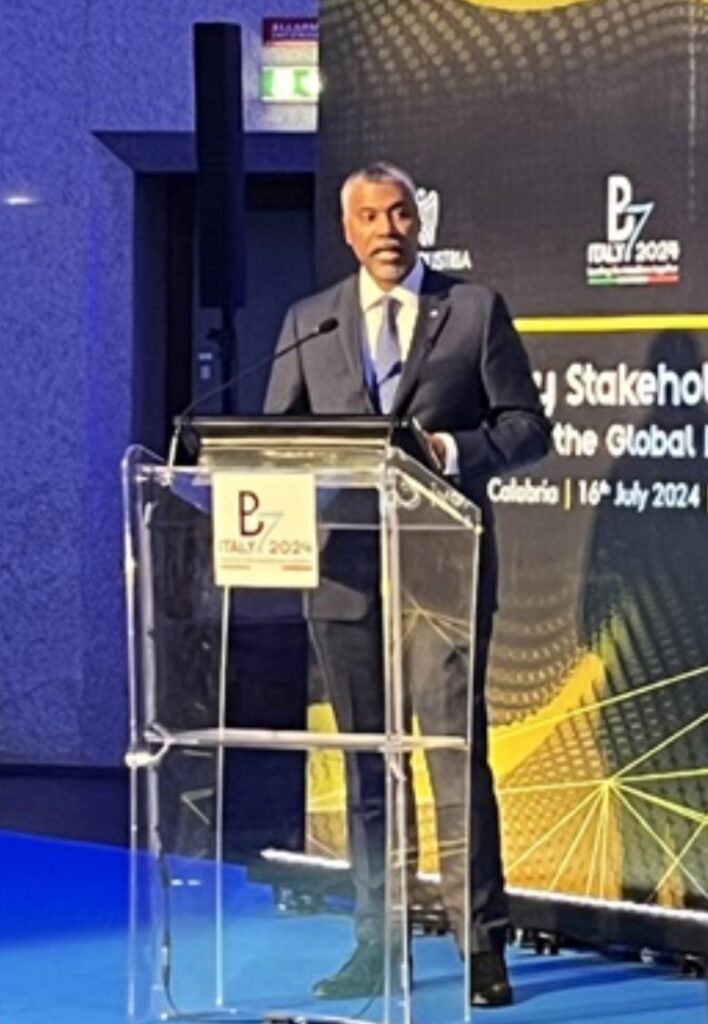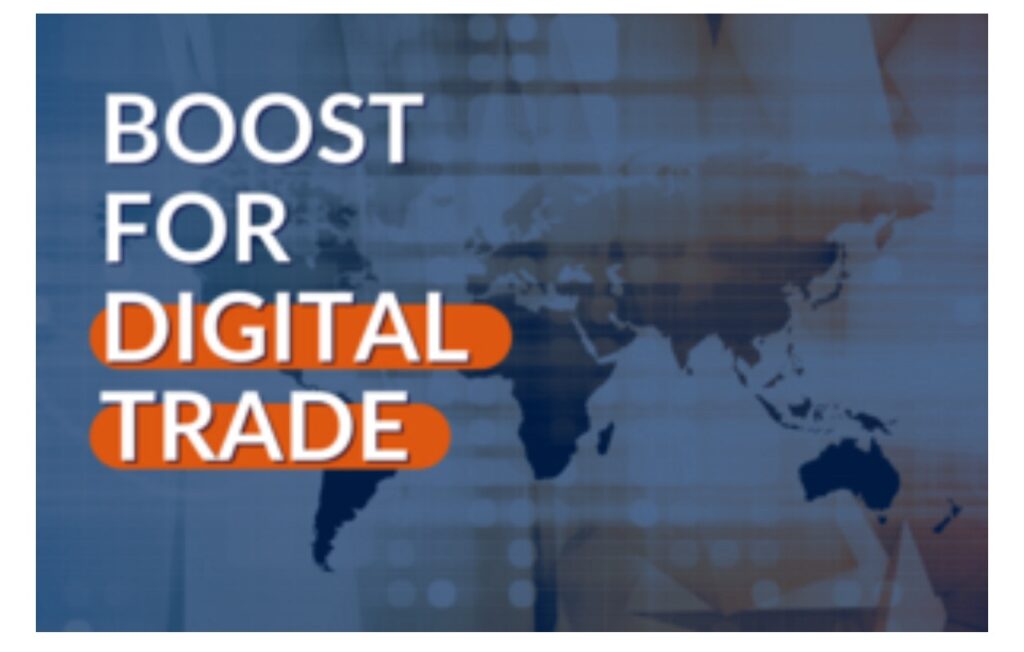On July 16, 2024, Secretary General Ian Saunders delivered keynote remarks at the G7 Industry Stakeholders Conference in Reggio Calabria, Italy. This conference, sponsored by Confindustria, was held in the context of Italy serving as 2024 Chair of the Group of 7 (G7). Secretary General Saunders joined a diverse group of industry and international leaders to discuss how the World Customs Organization (WCO) can collaborate to address contemporary challenges in international trade.

In his address during the session titled “Reconciling Economic Security and Free Trade,” Secretary General Saunders emphasized the importance of government-industry partnerships in achieving economic stability and equity within a free market. He asserted that success in reconciling these objectives depends on establishing trust among all actors involved in international trade and that this trust must be built and maintained through concrete actions and processes, not just rhetoric.
The Secretary General highlighted the WCO’s strong tradition of engagement with the private sector, which informs the Organization’s instruments, provides critical perspective, and facilitates joint efforts to tackle significant issues like e-commerce, trade resilience, and effective use of technology.
He illustrated the success of these partnerships, stating, “This history of working together has yielded significant results, such as the International Convention on the Simplification and Harmonization of Customs Procedures (Revised Kyoto Convention); the Authorized Economic Operator concept in the SAFE Framework of Standards; and, more recently, the creation of the WCO’s E-Commerce Package.”
He added that, “Through these initiatives, we have created the blueprint for Customs improvement; highlighted the importance of transparency of requirements, predictability of treatment, and articulation of benefits for compliant companies”. Secretary General Saunders concluded by asserting that institutionalized trust between Customs and industry can lead to solutions that reconcile economic security with free trade.
The B7 represents the interests of the G7 business community and shares its positions with the G7 leaders. As with the G7, the B7 membership is made up of Canada, France, Germany, Italy, Japan, the United Kingdom, and the United States.
The UK has today [Friday 26 July] joined a groundbreaking agreement which is designed to grow the economy by boosting global digital trade.
After five years of negotiations, the UK and 90 other countries have finalised the E-Commerce Joint Initiative at the World Trade Organization (WTO), which will make trade faster, cheaper, fairer and more secure. It will help British businesses, workers and consumers seize the opportunities of global digital trade, which is estimated by the OECD to be worth around £4 trillion and growing.
Once implemented, the agreement will commit all participants to the digitalisation of customs documents and processes. This will in many cases end the need to print forms off and hand them over at customs – a slow, expensive and old-fashioned way of working.
The signatories to this agreement will also commit to recognising e-documents and e-signatures, reducing the need for businesses to physically sign contracts and post them around the world.
Global adoption of digital customs systems, processes and documents would increase UK GDP by up to £24.2 billion in 2023 UK GDP terms. Even partial adoption could represent a significant boost to UK GDP.
It also commits signatories to putting in place legal safeguards against online fraudsters and misleading claims about products.

Business and Trade Secretary Jonathan Reynolds said:
We are proud to play our part in securing the first ever global digital trade agreement, cutting costs for business and delivering on this government’s ambition to deliver economic growth.
Britain is back and proudly playing her role as an outward looking trading nation. Global digital trade is already estimated by the OECD to be worth around £4 trillion and counting but no common set of global rules exist. This is a huge step forward in correcting that and ensuring British businesses feel the benefit.
Science Secretary Peter Kyle said:
This global agreement aims to help people use technology safely by protecting them from fraud, while driving economic growth through the digitalisation of trade so it’s faster and more secure.
We will leave no stone unturned in our work to share the benefits of technology and drive economic growth by working with partners around the world to achieve this.
For a UK financial services provider, doing business in any of the participating countries will require far fewer paper contracts and invoices, or manual signatures or authentication, as these will be replaced with their electronic equivalents.
Chris Southworth, Secretary General, International Chambers of Commerce UK said:
Businesses and economies thrive when there is one common set of rules. The E-Commerce Agreement is a major breakthrough and an excellent reminder of the power of international collaboration. It creates the environment we need to drive innovation as we transition away from archaic paper-based processes and into the modern world of data and technology.
It is an opportunity to accelerate efforts to digitalise our borders and global supply chains, and help to remove unnecessary friction and costs that prevent SMEs from trading. This is good news for business, consumers and the economy.
Global food commodity prices stabilized in April 2024, following six consecutive quarterly declines.
The World Bank’s food price process kndex is projected to decrease by 6 % in 2024 and 4 % in 2025.

However, several risks underpin these price forecasts, including energy and fertilizer costs, potential maritime chokepoints, and weather-related supply shortfalls. In the longer term, biofuel policies could affect food prices.
Read the entire article here: WB Blog
Source:WB






You must be logged in to post a comment.